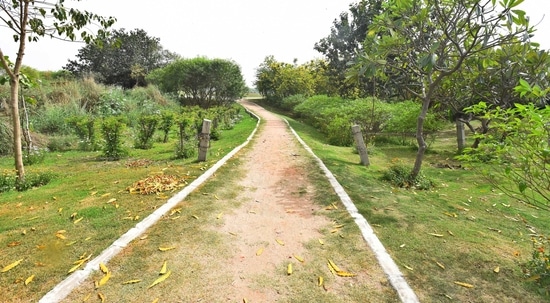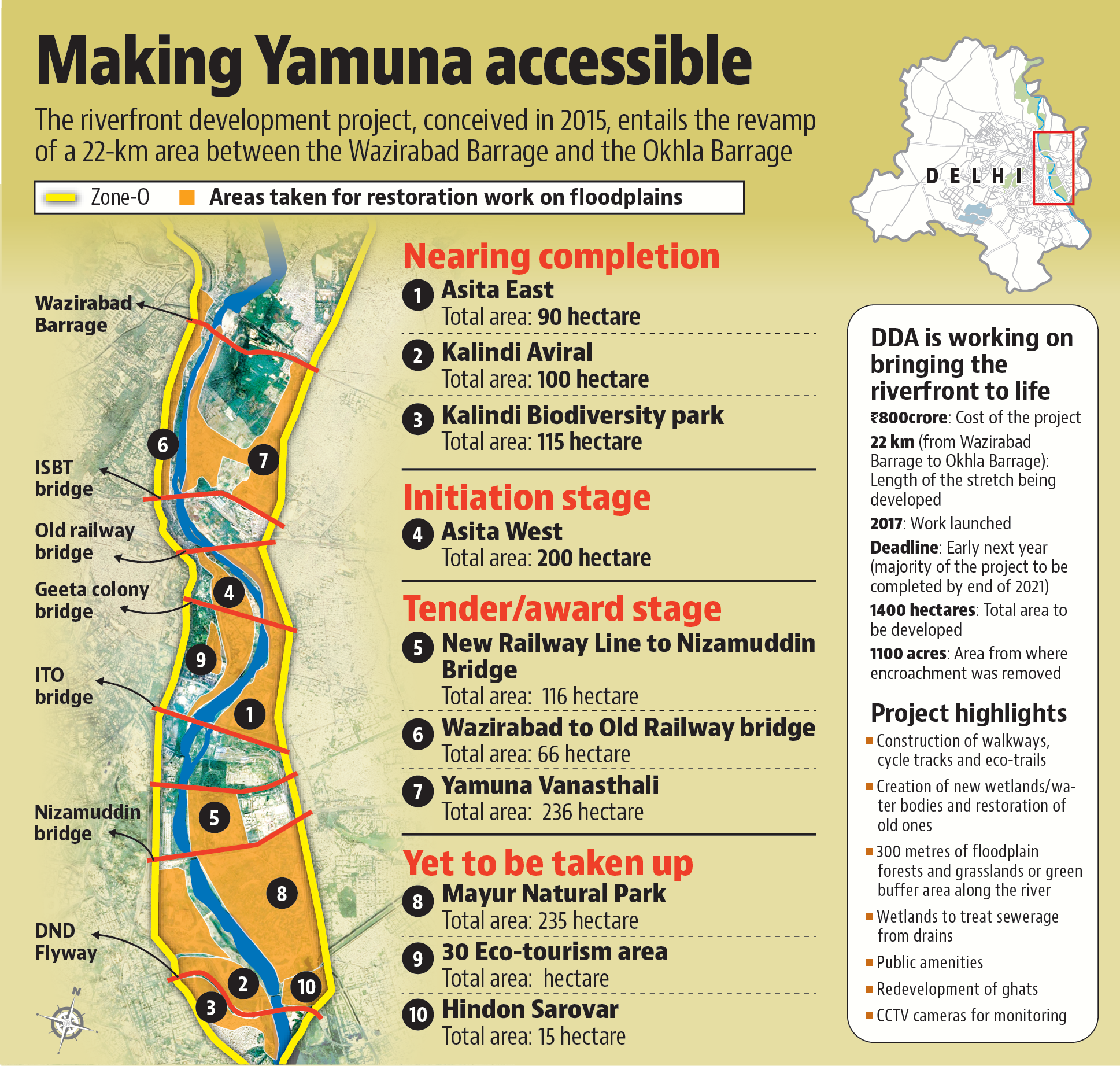Cycle tracks, eco-trails in revamp plan for 22km Yamuna riverfront
The officials said the project will not only help people connect with the river but also check the dying ecosystem of the Yamuna floodplains, both flora and fauna.
The Delhi Development Authority (DDA) is working on rejuvenating and making the Yamuna riverfront accessible to the public by building cycling tracks, walkways, eco-trails to wetlands and a floodplain forest along the 22 km area between Wazirabad Barrage and Okhla Barrage, a senior DDA official said.

Large parts of the 54km-long Yamuna riverfront have been rendered inaccessible for Delhiites for decades, while industrial waste and untreated sewage are dumped into the river.

The officials said the project will not only help people connect with the river but also check the dying ecosystem of the Yamuna floodplains, both flora and fauna. Under the plan, the DDA will develop close to 1,400 hectares of land on the eastern and western banks of the river.
DDA vice-chairman Anurag Jain said, “The entire stretch has been divided into 10 projects, each spread over 90 hectares and above. The work is moving at a fast pace, and three projects will be completed in the next few months. We aim to complete large parts of projects by the end of this year.”
The project to restore the riverfront was conceived following a National Green Tribunal order in 2015. The work on the riverfront, DDA officials said, started in 2017 and was monitored by the NGT-appointed Yamuna Monitoring Committee that was set up in 2018. The committee concluded its proceedings in January this year after it submitted its final report. DDA officials said that the restoration work on the 22km-stretch in Delhi has been planned as per the committee’s directions. The restoration work is being closely monitored by Delhi lieutenant governor (L-G) Anil Baijal, who has been taking regular review meetings. DDA submitted a status report to the L-G in February.
One of the biggest challenges in restoring the riverfront, Jain said, is removing encroachments and reclaiming the land. According to a senior DDA official, about 1,000 acres of land have been cleared of encroachment and are being developed, and work is going on in other parts.
DDA officials said they have installed CCTV cameras and deployed staff to prevent dumping of debris on the floodplains.
Of the total 10 projects, three —Kalindi Biodiversity, Park Asita East, Asita West—are in advanced stages of construction and will be completed in the next few months, officials in the know of the matter said.
Spread over 200 hectares, Asita West, located between the Old Railway Bridge and the ITO barrage, is one of the first areas being revamped. DDA has developed 4.8km of walkways, 1.5km of cycleways, three new water bodies, 300m of green buffer along the river, greenways, etc. on 93 hectares of land. The project is likely to be completed by June this year.
For residents of Walled City and nearby areas, this has become a popular spot. Kishore Kumar (35), who lives and works in Chandni Chowk, said that he often comes here with his children. “While there are parks in the area, there aren’t many such large open spaces. We usually come here on weekends. They have now expanded the park and constructed a water body here.”
DDA also plans to develop the three ghats (Qudsia, Yamuna Bazaar and Sur ghats). While work on Sur Ghat is expected to be completed by September this year, plans for the other two are yet to be prepared.
As part of the rejuvenation project, DDA is also developing a biodiversity park near Delhi Noida Direct (DND) Flyway. Spread over 116 hectares between DND Flyway and Okhla Barrage, the biodiversity park will have 11 constructed wetlands and will treat sewage from about 25 drains. It will also have 100m-wide greenways, about 6km-long walking trails and recreational parks.
The Delhi government has set a target of three years to clean the river.
CR Babu, who heads the Centre for Environmental Management of Degraded Ecosystems (CEMDE) at Delhi University, said, “Two of the 11 constructed wetlands are operational. We are treating drain water that has raw sewage from the Kilokri drain naturally via a constructed wetland system before the water is released into the river. A similar wetland system will be soon operational for the Maharani Bagh drain where 500MLD (millions of litres per day) of drain water will be treated. We are also constructing recreational spaces.”
However, environment experts say that beautifying the floodplains will serve no purpose if the river continues to be dirty.
Faiyaz A Khudsar, a scientist in charge of the Yamuna Biodiversity Park who is involved in the development of Kalindi Biodiversity park, said, “The river has to be clean before you take people close to it. How can people sit near the river if it stinks? Just beautifying the floodplains is not enough, we have to restore the ecology of the area which will help not only rejuvenate the river but become an attraction for the people.”
He added, “We are working on ensuring that sewerage water is naturally treated through constructed wetland systems before it is discharged into the river.”



